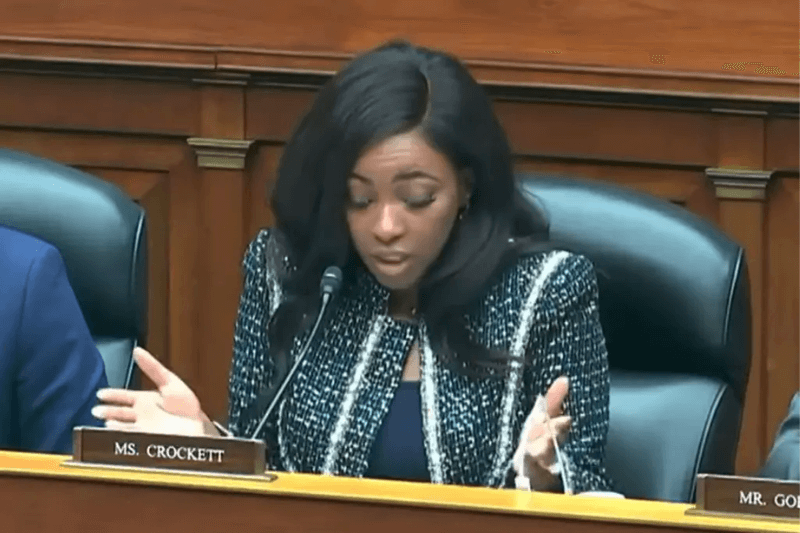
Are racism and personal attacks becoming the new norm in Congressional debates?
Debates in Congress can often be heated, but they rarely cross the level and reach on personal insults. However, on Thursday, the House Oversight Committee witnessed a surprising descent into physical taunts. During a debate over whether Attorney General Merrick B. Garland should be held in contempt of Congress, Representative Marjorie Taylor Greene, a Republican from Georgia, hurled a personal jab at Representative Jasmine Crockett, a Democrat from Texas, saying, “I think your fake eyelashes are messing up what you’re reading.”
Representative Alexandria Ocasio-Cortez, a Democrat from New York known for her signature red lipstick, swiftly defended Ms. Crockett. “How dare you attack the physical appearance of another person,” she said.
The exchange escalated with more name-calling. Ms. Crockett covertly retaliated by questioning the chair, James R. Comer, “If someone on this committee then starts talking about somebody’s bleach blond, bad-built butch body, that would not be engaging in personalities, correct?” This was a thinly veiled reference to Ms. Greene.
This makeup versus body image skirmish highlights a broader trend: the weaponization of physical appearances in political discourse, a tactic that has gained traction since Donald J. Trump’s rise to prominence. Trump, with his flair for personal insults, has set a precedent for such behavior. Whether he’s calling Stormy Daniels “horseface,” mocking Rosie O’Donnell as having a “fat, ugly face,” dubbing Marco Rubio “little,” likening his former aide Omarosa Manigault Newman to a “dog,” dismissing E. Jean Carroll as “not my type,” or criticizing Nikki Haley’s dress choice, Trump’s insults strike at deeply rooted insecurities tied to gender politics and stereotypes. These insults echo schoolyard taunts, making them highly relatable and particularly stinging.
Keep Reading
Ridicule that reduces individuals to their physical attributes or beauty choices, especially in the context of their public careers, is a potent form of objectification. This scrutiny is especially harsh on women, who have historically faced the brunt of such evaluations. It’s challenging to imagine Ms. Greene’s male colleagues, like Jim Jordan, being mocked for his receding hairline, or someone jeering at Chuck Schumer for his wrinkles.
Historically, discussions about appearances in politics have been self-deprecating and humorous. Hillary Clinton, for instance, joked about her hair color during her presidential run. “I may not be the youngest candidate in the race, but I have one big advantage: I’ve been coloring my hair for years,” she quipped in 2015. “You’re not going to see me turning white in the White House.”
However, when these jabs come from others, the tone shifts dramatically. In 2018, comedian Michelle Wolf faced backlash for mocking Sarah Huckabee Sanders’ eye shadow at the White House Correspondents’ Dinner, saying, “She burns facts, then uses that ash to create the perfect smoky eye.” Both sides of the aisle condemned her comments. Mika Brzezinski, co-host of “Morning Joe” and herself a target of Trump’s cruel remarks, empathized, saying, “Watching a wife and mother be humiliated on national television for her looks is deplorable.”
Today, it seems the tentative truce over physical appearance is broken. Trump’s Congressional supporters, like Ms. Greene, are following him, while their opponents are responding in kind. In this atmosphere, the real question is: who truly benefits from such degradation?




